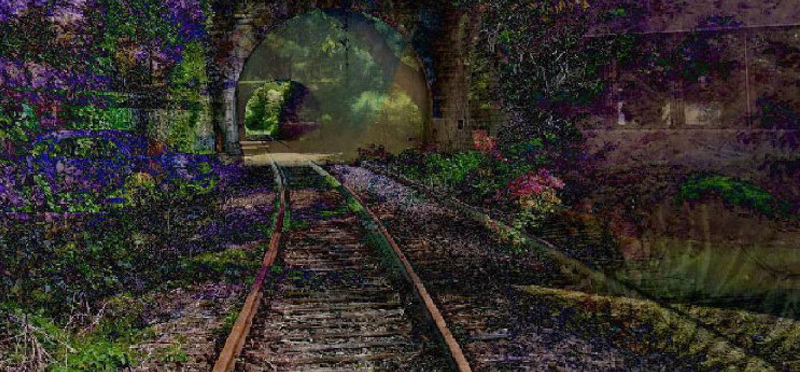No copyright for AI-generated art in the USA

Interesting but not surprising recent decision from the US: There is no copyright for AI-generated creative works created without human intervention. Copyright in the US only applies to human creations.
Summary
Plaintiff Stephen L. Thaler, PhD developed an AI system that creates original, artistic works. Dr. Thaler calls his AI system the "Creativity Machine." This “Creativity Machine” created the image shown here as the blog photo.
However, when Dr. Thaler attempted to register this AIs' artwork with the United States Copyright Office (USCO), the agency denied registration on the grounds that the agency had a "Human Authorship Requirement" policy for creative works and that they only register a work created by humans.
Dr. Thaler disagreed, arguing that the refusal was a violation of the Administrative Procedure Act ("APA") (5 U.S.C. § 706(2)). The "Human Authorship Requirement" policy is not supported by the copyright Act, Dr. Thaler postulated. He sued Shira Perlmutter in her official capacity as Director of the Copyright Office, asking the court to force the Copyright Office to reverse its refusal to register.
Both parties moved for early summary judgment. Since they agreed on the essential facts, this proceeding was to focus on the sole legal question of whether art autonomously generated by an AI system is copyrightable.
Copyright and the Register of Copyrights
In principle, copyright protection exists with the creation of a creative work and independently of a registration, this is the case in Germany and Europe and also in the USA.
Nevertheless, a registration offers advantages. If the USCO finds the work to be copyrightable, this is certified to the work with the registration and this also enables it to assert claims for infringement in court.
If, however, the USCO does not consider the work to be copyrightable, then the work is deemed never to have been subject to copyright protection. This is exactly what had happened in the present case. The registration with the USCO had been refused and thus there is no copyright protection for the AI artwork.
Copyright for AI generated work - the arguments
Dr. Thaler did not accept this and argued that the work was independently created by a computer system that belonged to him, and that he was entitled to own copyright in the AI-generated work, also on the basis of the doctrine of works made for hire and the basic principles of property law. However, if his AI's work is denied copyright protection, his rights would also be infringed.
The clear wording of the Copyright Act does not restrict copyright to man-made works (US Copyright Act Sec. 102(a)), Dr Thaler explained, and neither does case law. And he, Dr. Stephen Thaler, was indisputably the "person for whom the work was created" (17 U.S.C. 101).
The USCO/Perlmutter disagreed.
According to the USCO, these arguments concern the question for whom a valid copyright should have been registered. However, by refusing registration, the Registry had decided that there was nothing to register and thus there was no question of who was entitled to that registration.
Moreover, Dr. Thaler's arguments were contradictory. For if the "Creativity Machine" - as formulated in his application for registration with the USCO - generatively and completely independently created the work in question, then there could be no commissioned work from which Dr. Thaler derived his own rights.
The USCO therefore limited its examination to whether the requirement of human authorship was unconstitutional and unsupported by case law.
Are creative works generated by an AI copyrightable?
Indeed, this is a question that the courts have never answered before.
However, it pointed out that case law states the refusal of registration for non-human intellectual beings and animals (cited decisions: Urantia Found v. Kristen Maaherra, 114 F.3d 955, 957-959 (9th Cir. 1997), Naruto v. Slater, 888 F.3d 418, 426 (9th Cir. 2018)). In the latter case, the issue was whether a monkey could have standing to sue under the Copyright Act for works (photographie) created by that monkey; the answer was clearly no.
The decisions confirmed the "human authorship requirement" policy of the USCO.
This view was echoed by the US District Court for the District of Columbia. Since Stephen Dr. Thaler had also stated in his application for registration that the work was autonomously generated by the "Creativity Machine", there was no human intervention. Under these circumstances, the work was clearly not copyrightable, the US court ruled (decision of 18 August 2023 (Thaler v. Perlmutter, Case 1:22-cv-01564-BAH).
Undoubtedly, we are approaching new frontiers in copyright law as artists use AI to create new visual and other artistic works, the court added. However, copyright law has never extended to protect works created by new forms of technology that function without any human interference, the court said.
Conclusion
Human authorship is a fundamental requirement of US copyright law. This is an interesting but not surprising decision from the US. The same is true in Germany, but not so in the UK. In this context, please read our blogpost ChatGPT - is 2023 the year of generative AI technology?.
In any case, a discussion on the copyright of AI-generated works has been initiated. Two US senators, as well as an undersecretary of the USPTO and Shira Perlmutter, launched a call in late 2022 to “jointly establish a national commission on AI” to assess, among other topics, how intellectual property law may best “incentivize future AI related innovations and creations”.
So, this case could have implications far beyond the facts of the case. It could usher in a fundamental shift in what is copyrightable in the first place and who owns the copyright, especially in the context of AI applications.
Do you have questions about innovation with AI application? Our patent law firm Köllner & Partner has a highly qualified team and offers a lot of expertise in this regard, f.e. the DABUS Project.
Contact us without any obligation, by phone at +49 69 69 59 60-0 or info@kollner.eu.







